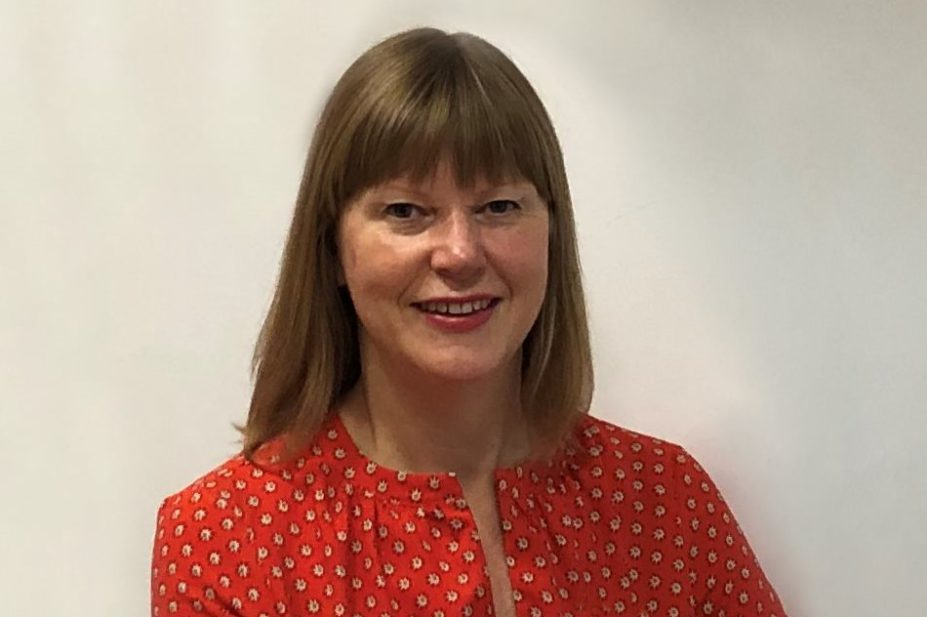
Jackie Chappell
I work at King’s College Hospital (KCH) NHS Foundation Trust, which houses one of the largest bone marrow transplant centres in the UK. And, in early 2019, it became the first hospital in the UK to provide licensed chimeric antigen receptor T-cell (CAR-T) therapy to treat adults with lymphoma. To date, we have treated 50 patients.
Before working with CAR-T, I worked at KCH for 22 years as the pharmacy team leader for haematology/oncology, but now I have an exciting new role as a consultant pharmacist, specialising in haematology and advanced therapy medicinal products (ATMPs) — a new class of medicines that includes CAR-T therapies.
During CAR-T therapy, T-cells are removed from the patient’s blood, genetically modified, and infused back into the patient. The new CAR-T cell then attacks and kills the patient’s cancer cells.
The journeys of both the patient and the CAR-T cell product are very complex and require a multidisciplinary team to provide safe and timely treatment. My background is in clinical pharmacy, but as part of this process I have worked across the traditional boundaries with other pharmacy departments, including clinical trials, governance, quality assurance and aseptics.
I am responsible for developing and managing the pharmacy services related to this treatment. Juggling these responsibilities can be challenging, particularly because of the fast turnarounds required at certain points of the process.
I am also involved in achieving site accreditation by NHS England, Europe’s accreditation body for cellular therapy and the pharmaceutical companies who provide the products.
This is a very demanding role: I create policies and procedures for all aspects of the service, order the CAR-T product, manage the finances and organise bridging or lymphodepletion chemotherapy.
I oversee storage, dispensing and administration of the products. These products need to be stored at ultra-cold temperatures (<150°C) in vapour-phase liquid nitrogen. We are unable to store them in the pharmacy department at the moment, so I am working with our stem cell laboratory, where they are currently kept. I never thought I would be attending safety training for cryogenic gases in order to visit the stem cell laboratory to do my job.
And I conduct medicines management, monitor the patient after infusion and manage toxicities. It has been so interesting to learn how to manage some of the unusual and potentially fatal toxicities that can be seen following treatment, including early toxicities (such as cytokine release syndrome and immune effector cell-associated neurotoxicity syndrome), and late toxicities such as B-cell aplasia hypogammaglobulinemia and cytopenias.
There has been a lot to learn, so the pharmacy team and I have taken a great deal of training — it is imperative that there are enough pharmacists who are trained to deputise in my absence.
Training has also been given to the wider pharmacy team in the hospital (on-call, critical care and neurology pharmacists); medical and nursing staff; and pharmacists at other hospitals who may refer patients for CAR-T therapies or see patients who have received the treatments. And as these treatments evolve, there will also be training opportunities for community pharmacists and pharmacy undergraduates.
I am also working with other pharmacists on a national level to advance knowledge in this emerging area. I am part of the Pan UK ATMP Pharmacy Working Group and I co-chair the clinical subgroup. We share our experiences and we are producing national recommendations which will be published by the Specialist Pharmacy Service.
It has been an exciting first year providing CAR-T cell therapies — there is never a dull moment because there are so many different scenarios to negotiate. And it has been so rewarding to work as a pharmacist on a team that offers patients brand new therapies. I think we’ve demonstrated that we can manage patients receiving these new treatments safely and effectively.
The therapy is still in its early days, but we are seeing some very encouraging disease responses in patients for whom there were really no other treatment options.
CAR-T cell therapy is just the tip of the iceberg; with many more ATMPs in the pipeline, I encourage any pharmacists who like a challenge to learn more about them.
Jackie Chappell, consultant pharmacist (haematology/advanced therapy medicinal products), King’s College Hospital NHS Foundation Trust
You can meet Jackie Chappell and other leading expects who are prescribing, reviewing and administering ATMPs at ‘CAR-T and Immunocellular Therapies: A New Class of Medicines’.
Taking place on Thursday 6 February 2020 at the Royal Pharmaceutical Society, London, this one-day event will help you understand CAR-T/ATMP therapies and their place in practice, now and in the future. Find out more at: https://events.rpharms.com/website/993/


